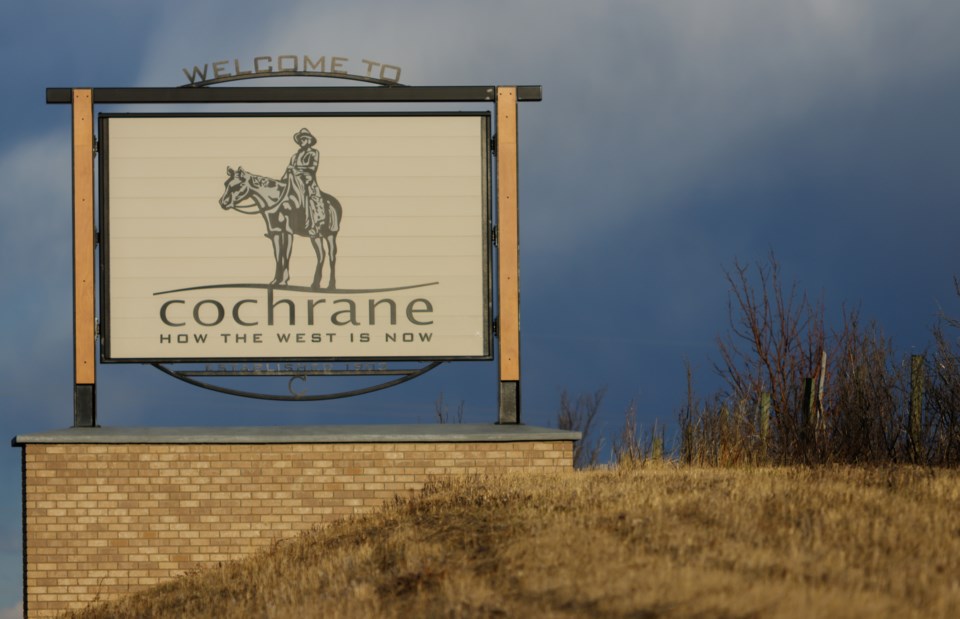COCHRANE— Taking steps to fully understand the impact of COVID-19 on the everyday lives of Cochranites, the Town’s Social Recovery Task Force recently released the results of their community engagement survey.
Councilor Susan Flowers said she was impressed with the response rate to the survey and appreciated peoples need to talk about how they have been personally affected by COVID-19. A total of 552 people participated in the survey.
“It was a fairly lengthy survey with pretty in-depth questions and to totally fill it out was pretty awesome,” Flowers said.
The survey boiled down to three key topics— Safety, mental health and community.
On the survey people indicated that loneliness and isolation have been the worst part of the pandemic, Flowers said.
The Task Force will be working within the parameters of the Alberta Public Health measures set by the province while finding ways to encourage people to find ways to connect and socialize safely.
Flowers noted the Social Recovery Task Force has been aided by the fact many organizations have been able to transition online. However, she noted that not all Cochranites are tech-savvy enough to take full advantage. The survey indicated that 99 per cent of Cochranites had access to technology.
“A lot of seniors are lonely and a lot of single people find it really hard,” Flowers said.
Flowers noted that there is a worry the Town may face a second wave of the virus. A key concern is that while many have been able to weather the economic storm created by COVID-19, there is a lot of uncertainty about what the future will hold if a second wave hits.
“A lot of people are lonely and they want to do it [socialize] in a safe way, so we want to come up with some ideas and recommendations about how they can do that,” Flowers said. “But, if the health regulations change then that changes everything.”
Flowers added that people are also concerned with getting back into the community and strengthening safety messages while encouraging socialization.
“The group is going to come up with some dynamic solutions, recommendations and ideas in the future,” Flowers said.
Cochrane Family and Community Support Services manager Kim Krawec said the biggest takeaway from the survey is the loneliness people have experienced and the emotional, physical and mental impact it has had on community members.
“We’re wired to be connected being and I think it was just amplified over and over again in the survey,” Krawec said. “People are missing friends, missing families— It just made people realize what is important and they were missing that connection piece.”
The survey captured “a moment in time,” Krawec said, that will help the Social Recovery Task Force formulate a plan to move forward from the COVID-19 pandemic.
The one silver lining to be found during the pandemic is that the move to online programs and services proved beneficial for some community members. Krawec explained that not everyone could attend events or information sessions in Town— With virtual events and services they now have the opportuntiy to participate.
“They’ve actually never been able to participate until we moved into a virtual format,” Krawec said. “That was really eye-opening for us.”
The one challenge with the survey is that is proved difficult connecting to community youth, who accounted for one per cent of respondents.
“It’s a tricky population to reach,” Krawec said, adding that this was made more difficult because they were unable to go through schools and other traditional ways of connection.
It will be challenging bringing the community together because over the last several months people have been inundated by negative messages that create fear. Krawec said 87 per cent of respondents indicated they had been negatively impacted by the news media, which has effected people’s mental health and contributed to fears about safe socialization.
“We want to help people feel part of the community again,” Krawec said. She added that this will include a campaign to share with people how to connect safely during the pandemic. “People want a connection but there’s a level of fear— The guidelines always change and people aren’t sure what they can do.”
The Task Force has been fluid in planning for the future and is working to make it easy to access the financial supports available, tap into different resources and keep up to date on different opportunities available.
As part of this, they are working to unite non-profit organizations and share trends that emerged in the survey, share grant opportunities and collaborate to meet the needs of the community.
The Social Recovery Task Force will now take the data they have collected to formulate a strategy to recover from COVID-19, and they will begin making recommendations to council and groups in the community to highlight where they can make a difference.
“We won’t be planning in isolation,” Krawec said. “This is going to take a community effort and involvement from many.”




